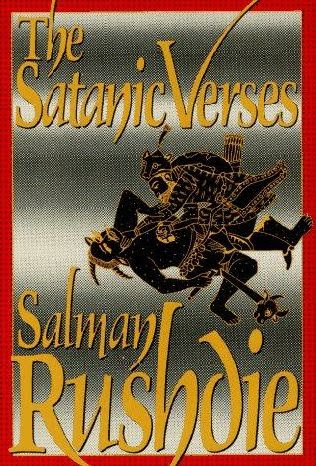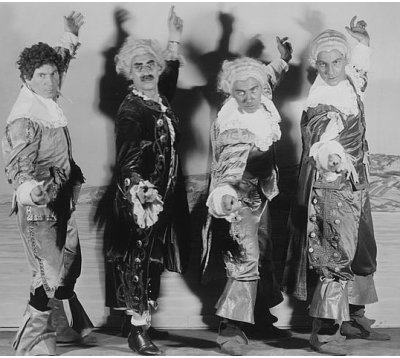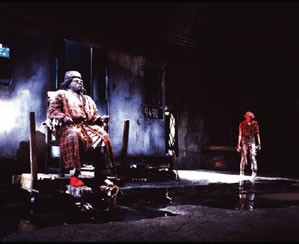The subject du jour is censorship.
Readers with long memories (and enduring patience) may remember my series from the spring concerning my production of “The Farnsworth Invention” that inspired a group to protest the show.
Much to everyone’s relief – especially mine – I’m not going to rehash l’affaire Farnsworth. If you’re so inspired, click over on the right there, and you can relive the boycotting thrills.
What I am going to do is use it a springboard to talk about censorship in regards to this whole “Interview” thing. If you have no idea what I’m talking about, pick up a goddamn newspaper.
While no one would ever accuse entertainment executives of being brave or even acting for any but the most venal reasons, this thing manages to plumb new depths of cravenness. I’ve said before that I don’t believe actors do brave things in a performance. They do remarkable things – but “brave?” No. Soldiers are brave. Cops are brave (when they’re not shooting unarmed civilians). Firefighters? Brave. Actors who simulate emotions? Nope. They can be funny or moving or powerful or dull, but I don’t think they’re brave. That said, they’re Congressional Medal of Honor winners compared to the theatre owners and studio executives who shit the bed at the thought of unknown hackers making vague threats against unspecified audiences. I had no idea that North Korea had such a sophisticated intelligence and military structure that it could infiltrate – with weapons – each of the thousands of theatres that were scheduled to screen the movie. If they’re that effective, can’t we hire these guys to take on ISIS?
North Korea's finest?
Now, anyone who knows me knows I loathe Seth Rogen. Every one of his movies strikes me as the product of people who smoked way too much dope – to the point where they think a Seth Rogen movie is funny. While “The Interview” really didn’t need any help disappearing – from the reports of the few critics who saw it, it would have vanished on its own within a matter of weeks – the enforced prohibition of it is the first step on a very steep slope away from art or any kind of creative expression. What’s next? If a white-supremacist group threatens screenings of “Selma,” will that be banned? If anti-Semitic groups want to prevent a Holocaust movie from being shown, will the studios cave?
We’ve already seen numerous cases of productions of plays like “Corpus Christi” or “The Laramie Project” cancelled because certain groups – usually right-wing, usually Christianist, usually demanding that their own rights be obeyed by everyone while trampling everyone else’s – were offended by their content. And look at the recent protests over the Metropolitan Opera’s recent production of John Adams and Alice Goodman’s “The Death of Klinghoffer.” How dare anyone even suggest that Palestinians have been oppressed by the Israelis? (For that matter, try doing a production of “My Name is Rachel Corrie;” a play that’s such a hot button that Wikipedia has a section of “Confirmed Performances.”) And I’ve mentioned more than once how a 1967 production of Michael McClure’s “The Beard” was raided nightly at my alma mater of Cal State Fullerton because of its on-stage simulation of a blow job.
In this continuum, the people who protested my production of “Farnsworth” were amateurs. Yes, they preferred we not do the show because they felt – with some justification – that the script doesn’t give credit to Philo Farnsworth and his invention of television. But their objections ended at picketing and the handing out of informational sheets; an activity we were happy to help them with.
For me, the idea that someone would want to protest and shut down a show is one of the compelling reasons to do it. I might disagree or despise a play, but I’ll damned if I’d call for it to be banned. (I might personally boycott it, but I wouldn’t prevent others from trying to see it.)
It’s like in my bookselling days. Anyone here remember “The Satanic Verses?” (Since this happened more than five minutes ago, I’ll explain it.) Back in 1988, Salman Rushdie wrote the book, and certain Islamic fundamentalists were so offended by the mere idea of it that they threatened Rushdie with death. The American publisher grew terrified at the prospect of issuing it and cancelled it. Of course, that just made everyone want to own it (much as they want to see “The Interview” now). Eventually, an anonymous consortium of publishers put the book out. It was scheduled, and my bookstore – like probably every bookstore (this is way pre-Amazon, remember) – had dozens of orders for it. When it finally came out, I spent many days calling people to tell them it was in and available for purchase. One call was to woman with an Arabic-sounding name. I told the deep-voiced man with a middle eastern accent who answered the phone that the copy of “The Satanic Verses” she’d ordered was in. There was a pause, then an ominous “Oh, she did … ?” I have no idea if she ever came in to get it. But is that what we’ve come to, though? An anonymous voice sounds mildly threatening, and we’re supposed to cower under the bed? Fuck that noise.
Hope I don't get in trouble for promoting this
For the last word, I surprisingly turn to the E! Network. In their report on George Clooney’s reaction to the boycott, they had this to say:
“The A-list actor … explains why the studio opted
to scrap the Seth Rogen and James Franco flick while also discussing the lack
of support from others in industry and urging everyone to see the bigger
picture at hand—which is, mainly, that we’re now allowing North Korea to
dictate what we watch.
“‘Here, we’re talking about an actual country
deciding what content we’re going to have. This affects not just movies, this
affects every part of business that we have. That’s the truth. What happens if
a newsroom decides to go with a story, and a country or an individual or
corporation decides they don’t like it. Forget the hacking part of it,’ Clooney
says.
“’You have someone threaten to blow up buildings
and all of a sudden, everybody has to bow down. Sony didn’t pull the movie
because they were scared. They pulled the movie because all the theaters said
they were not going to run it. And they said they were not going to run it
because they talked to their lawyers and those lawyers said, if somebody dies
in one of these, then you’re going to be responsible.’
“He continues, ‘This is a silly comedy, but the
truth is, what it now says about us is a whole lot. We have a responsibility to
stand up against this. That’s not just Sony, but all of us, including my good
friends in the press who have the responsibility to be asking themselves, what
was important, what was the important story to be covering here. The hacking is
terrible because of the damage they did to all those people. Their medical
records, that is a horrible thing, their Social Security numbers. Then, to turn
around and threaten to blow people up and kill people, and just by that threat
alone we change what we do for a living, that’s the actual definition of
terrorism.’”
I know I don’t want anyone telling me what I can and cannot see, read, or perform. Neither should you. And if Dear Leader doesn’t like it, the little fat toad can climb a stepladder and bite me.
.jpg)












